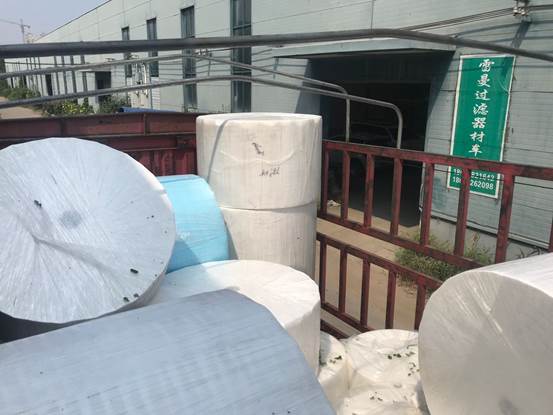Aug . 15, 2024 15:11 Back to list
Understanding CE Certification Requirements for Industrial Air Filters and Their Importance in Safety Standards
CE Certification for Industrial Air Filters
In today’s industrial landscape, ensuring air quality is paramount for both environmental sustainability and the health of workers. Among the various technologies deployed, industrial air filters play a critical role in maintaining a safe and healthy workplace. These filters are essential for capturing pollutants, particulate matter, and other harmful substances from the air. However, to guarantee their effectiveness and safety, compliance with specific regulations and standards is crucial. One such standard is the CE certification.
Understanding CE Certification
CE marking is a certification mark that indicates conformity with health, safety, and environmental protection standards for products sold within the European Economic Area (EEA). For industrial air filters, obtaining CE certification means that the products meet the rigorous requirements set by the European Union (EU) legislation, ensuring they are safe to use and operate effectively in various industrial applications.
The CE marking is especially important for industrial air filters, as these devices are often subject to different legislations such as the Machinery Directive, the Low Voltage Directive, and the Electromagnetic Compatibility Directive. Companies manufacturing or importing air filters must ensure compliance with these directives, which involves extensive testing and documentation to demonstrate that their products do not pose any safety risks.
Importance of CE Certification
1. Safety Assurance CE certification provides assurance that the industrial air filters meet essential health and safety requirements. This is particularly important in industries where workers are exposed to hazardous air pollutants. Certified products help significantly reduce health risks associated with poor air quality.
2. Quality and Performance The CE marking indicates that the product has undergone rigorous testing to validate its performance capabilities. For air filters, this includes efficiency tests against specific particulates and pollutants, ensuring they can effectively reduce contaminants in the air.
3. Market Access CE certification is often a mandatory requirement for products sold within the EU. Without this certification, manufacturers may face difficulties entering the European market. CE marking opens doors to broader market opportunities, allowing manufacturers to reach customers who prioritize safety and compliance.
4. Regulatory Compliance For industries heavily regulated by local and international laws regarding air quality and environmental impact, CE certification helps companies adhere to those regulations. This compliance reduces the risk of penalties and fosters a responsible corporate image.
ce certification industrial air filter

5. Competitive Advantage In an increasingly competitive marketplace, having a CE mark can be a unique selling point. It signals to customers that the product has been thoroughly evaluated and meets high standards. Consequently, this certification can help build trust and credibility with potential clients.
The CE Certification Process for Industrial Air Filters
The process to attain CE certification typically involves several key steps
1. Product Assessment Initial assessments to determine applicable directives and standards that apply to the specific air filter.
2. Testing and Evaluation Conducting tests to assess the filter's performance against standards. This may involve both laboratory and in-field testing.
3. Technical Documentation Compilation of a technical file that includes test results, manufacturing processes, and compliance statements.
4. Declaration of Conformity Once testing and documentation are complete, manufacturers must issue a Declaration of Conformity, stating that the product meets all relevant EU safety and health requirements.
5. Continuous Compliance After certification, manufacturers must continue to ensure their products comply with ongoing applicable standards and stay updated with any changes in legislation.
In conclusion, CE certification for industrial air filters is an essential element that guarantees safety, quality, and compliance with regulatory standards. This certification not only protects the health of workers but also enhances marketability and fosters trust within the industry. As air quality regulations become increasingly stringent, the role of certified industrial air filters will continue to grow, underscoring the importance of compliance in ensuring a healthier work environment.
-
OEM PLXB-1 PU Pack Trimming Machine - High Precision, Durable, Cost-Effective Solutions
NewsJun.10,2025
-
High-Performance In Line Fan Filter Trusted In Line Fan Filter Company & Products
NewsJun.10,2025
-
High-Efficiency Water Filter Making Machine Reliable Companies & Products
NewsJun.10,2025
-
Premium Metal Fuel Filter Durable & Efficient for Engine Protection
NewsJun.10,2025
-
Premium OEM 304 Rimmed Filter Disc Custom Stainless Steel Filters
NewsJun.10,2025
-
China PP Air Filter Production Line Automated & High-Efficiency Solutions
NewsJun.10,2025
